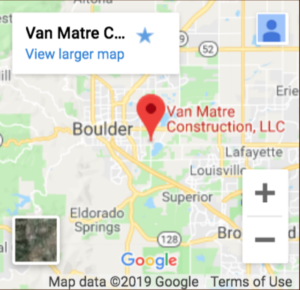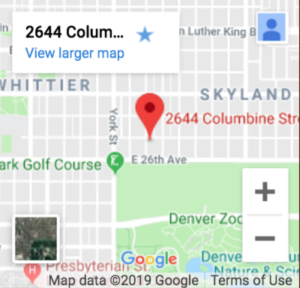Introduction
Ever come downstairs after a heavy Colorado rain and found that unmistakable damp, musty smell? Or worse—puddles forming where there definitely shouldn’t be any? If so, you’re not alone. In Denver, basement flooding isn’t just a fluke. In fact, water damage due to hydrostatic pressure is one of the most common homeowner headaches here (and yes, it's as stressful as it sounds).
But what is this “hydrostatic pressure” everyone keeps talking about? And why does it love targeting Denver basements? If you’re confused, don’t worry. I totally get it—this stuff can sound more like high school science class than anything to do with your home. Stick with me. By the end of this article, you’ll know exactly what hydrostatic pressure is, how it affects basements in our area, and—most importantly—how to stop it from turning your basement into an indoor pool.

What is Hydrostatic Pressure?
Let’s break this down in plain English. Hydrostatic pressure is just a fancy name for the force that water exerts when it builds up around something, like your basement walls or floor. Think of it like this: if you’ve ever tried to hold a beach ball underwater, you’ve felt hydrostatic pressure. The deeper you go, the harder that ball wants to pop up.
When rain or melting snow soaks into the soil around your home, all that water pushes against your basement foundation. The wetter the soil gets, the more it presses in—a bit like someone leaning on a door, with occasional shoves when it rains hard.
Why does this matter? Because most basement walls—whether they’re poured concrete, cinder block, or stone—aren’t built to withstand constant pressure from the outside. Over time, this pressure can force water through tiny cracks and gaps, causing everything from mysterious damp spots to full-blown flooding.
Fun fact: Did you know that every foot of water pressing against your basement wall equals about 62.4 pounds of pressure per square foot? That’s a lot more than you’d want leaning on your house day after day!
Visual Aid Suggestion: (Imagine a diagram here, showing water building up in the soil, arrows pushing against a foundation, and water making its way inside.)

Soil Saturation and Water Tables
Denver’s underground water table—the level below which the ground is saturated with water—will rise and fall with the seasons, storms, and snowmelt. Sometimes, after a long wet spell, the water table can come up high enough to press directly against your foundation.
Certain soil types make things worse. Expansive clay—common in Denver—acts like a sponge. It holds onto water and presses harder against your foundation as it swells. Sandier soils drain quickly (which is good!), but they can lead to erosion and shifting if not handled properly.
No matter what your basement is made of—concrete, cinder blocks, brick—hydrostatic pressure plays a role. Concrete might seem solid, but believe me, even tiny cracks or porous spots can let water sneak in.
Hydrostatic Pressure and Denver Basements
Let’s talk local. Why are Denver basements especially vulnerable?
Denver’s Unique Dirt
If you live here, you probably already know Denver’s soil is a mixed bag. In the metro area, there’s a lot of heavy clay—great for pottery, not so great for your foundation! Clay’s ability to expand when wet means water pressure against your basement walls can spike after storms or snowmelt, especially if your home doesn’t have proper drainage.
Climate: Wild Swings and Freeze-Thaw Cycles
Denver’s climate isn’t always gentle. We’re famous for those wild temperature swings—sunny and 65 in the afternoon, freezing at night! When the ground freezes and then suddenly thaws, all that expanding and contracting soil can stress your foundation (and any little cracks get bigger with each cycle).
And, Colorado’s infamous spring storms can drop a month’s worth of rain in a day. When that happens, it’s like pouring a bucket directly on the ground outside your window. Water tables shoot up. Hydrostatic pressure ramps up. And, unfortunately, that’s when basements leak.
Real-world example: Last spring, after an epic storm, I had three friends reach out the same week asking why their previously dry basements were suddenly damp. Spoiler: Hydrostatic pressure had found a new way in.
Water Damage in Denver: By the Numbers
Water damage isn’t rare here. According to the Insurance Information Institute, 1 in 50 homeowners file a water damage claim each year nationwide, and Colorado is no exception. Local water mitigation pros often cite hydrostatic pressure as one of the leading causes of basement flooding in the Denver metro.

Mitigating Hydrostatic Pressure in Basements
Okay, so let’s get down to business—how do you stop hydrostatic pressure from winning the battle with your basement?
Exterior Waterproofing Systems
Stopping water before it gets inside is the gold standard. Here’s how the pros usually do it:
- Exterior Drainage Systems: French drains, footing drains, and other buried piping collect water and move it safely away.
- Waterproofing Membranes: Rolled or sprayed-on waterproof barriers are applied to the outside of foundation walls. These keep water from ever touching the concrete.
- Gravel Backfill: Helps move water quickly to drains, lowering pressure against the wall.
Interior Waterproofing Systems
Sometimes, digging outside just isn’t an option. That’s where inside solutions come in:
- Interior Drainage Channels: Installed at the base of basement walls, these channels collect and direct water to…
- Sump Pumps: These little lifesavers pump water up and out when the pressure’s on.
- Sealants: Not a cure-all, but can help slow down minor leaks.
Proper Grading and Drainage
Sometimes the simplest fixes make the biggest difference. Make sure the dirt slopes away from your home, not towards it. And keep gutters clean! Clogged gutters and downspouts dumping water near the foundation are practically an invitation for trouble.
Foundation Crack Repair
Even the best basements can develop hairline cracks. The trick is fixing them quickly, before they become mini water slides for incoming moisture. Epoxy injection and polyurethane crack repair are effective ways to stop leaks and restore integrity to your walls.
Quick Checklist: Are You at Risk?
- Frequent puddles or damp floors in your basement?
- Musty odors after it rains?
- Visible cracks in basement walls or floor?
- Soggy spots right around your foundation outside?
If you answered “yes” to any of these, hydrostatic pressure might be the culprit.

Choosing a Professional for Hydrostatic Pressure Solutions
Be honest: does the idea of digging up your yard or installing a complex drainage system sound fun? Me neither! That’s why choosing the right pro is so important.
Here’s what to look for:
- Experience in Denver: Local knowledge is EVERYTHING. You want someone who knows our soils and weather quirks.
- Licensing & Insurance: Self-explanatory, but don’t skip these basics.
- Reviews & Reputation: Ask neighbors, check out Google reviews, and look for honest feedback.
- Clear, Upfront Estimates: No bait-and-switch pricing.
At Van Matre Construction, we live and breathe Denver basement waterproofing. We handle the causes—like hydrostatic pressure—because we’ve seen how much damage they can do. Our team stays up to date on the latest methods and works with transparency, so you’ll always know exactly what’s going on with your basement.
Conclusion
To sum it all up: Hydrostatic pressure is a real force in Denver basements, but it doesn’t have to win. Whether you’re facing musty smells, damp spots, or puddles, proactive waterproofing is your best defense. Don’t wait until “just a little water” becomes a disaster—that’s something I’ve seen too often, and let me tell you, it’s no fun cleaning up after.
If you’re curious, worried, or just plain tired of dealing with basement water issues, let us help. Reach out to Van Matre Construction for a free, no-pressure inspection. Let’s keep your basement dry, safe, and ready for whatever wild Colorado weather throws at it.

About Van Matre Construction
Founded in 2001 by Brady Van Matre, Van Matre Construction has become a trusted name in the Boulder and Denver construction markets. The company is dedicated to delivering top-tier foundation repair and construction services, prioritizing client satisfaction and structural integrity.













